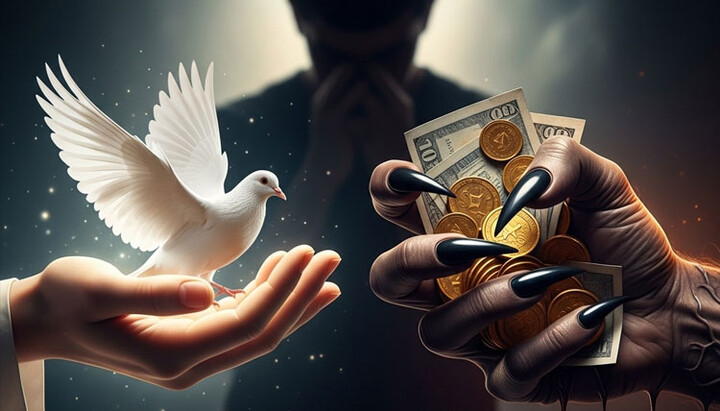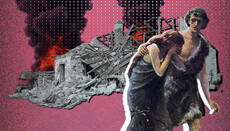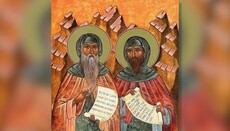Wealth as a narcotic for the soul: the Gospel view on money

Why Christ called the rich miserable, the poor blessed, and money the counterfeit grace of hell: on the spiritual danger of greed and the choice between God and mammon.
“It is hard for the rich to be saved”
“It is easier for a camel to pass through the eye of a needle than for a rich man to enter the Kingdom of Heaven.” Christ spoke these words to people who from childhood had been taught something entirely different in the synagogues. Their teachers assured them that wealth was a sign of God’s favor: if you had abundance, it meant you were pleasing to God; if you were poor and childless, it meant He had turned His face away from you. Such a man was branded a sinner and told to accept it.
No wonder then that the words of Christ so shocked His disciples. If even the rich cannot be saved, then who possibly can?
The Lord did not dismantle, beam by beam, the false edifice of Jewish theological assumptions. He simply replied: “For man it is impossible, but with God all things are possible.”
And with this hope we live: that all our efforts to attain salvation are in themselves nothing. Our only hope is in the mercy of the Lord.
Wealth – a drug for the soul
But Christ warned us clearly about the danger of riches. He did not speak of wealth merely as a vague threat arising from the desire to possess. No – the Savior declared outright to the rich and the sated: “Woe to you.” Woe, because what awaits you beyond the grave is suffering and torment.
This is a warning of tremendous weight – yet it went unheard. For wealth and prosperity have become the very meaning and purpose of life for the majority of humanity. Why? Because wealth is a narcotic for the soul. Once it tastes this counterfeit substitute for grace, it becomes addicted, craving ever greater doses.
In the Gospel sense, the “rich” is not simply one who has much money, but one for whom money has become the definition of happiness – whose bank account has replaced God, and whose luxury has supplanted the Kingdom of Heaven.
The holy fathers taught: flee any attachment to earthly things. They are magnets, pulling a man down until he is ensnared so tightly he cannot escape. To every earthly joy, they advised, add a measure of sorrow – so that the joy may not cling to the soul.
The illusion of happiness bought with money
Money and material plenty can intoxicate the mind with a sweetness akin to light drunkenness. For a while, one feels safe and satisfied: everything is well, I am secure. The more money, the greater the sense of possibility. And when there is very much, one begins to feel a power like that of kings – even of gods.
This is confirmed by outward experience. People flock to the rich, fawn at their feet. The world itself seems to bow before them. Thus is fulfilled the devil’s promise: “You shall be as gods.”
Blinded by this delusion of grandeur, the wealthy forget how fragile it all is: a single sickness, the slightest failing of the body, and the illusion of omnipotence collapses. The rich man persuades himself that money can solve everything – even death, even disease. Yet how often have we seen, in the lives of the famous, that their so-called “protection” was nothing but a mirage.
Earthly happiness is the devil’s merchandise, sold for money. The essence of this “happiness” is simple: you may gratify every desire. But to buy yourself such an all-inclusive earthly life, you must sell your soul.
This is the essence of the pact with the devil: when a man dedicates every talent of his soul, every hour of his time, to the service of mammon. He does not notice that it is not money serving him – it is he who serves money. And therein lies the deception: the devil cannot give happiness. He has no such power. All he can offer is an empty box, attractively wrapped. A man buys this emptiness, and with it a fleeting euphoria. Yet the thrill soon fades; the new thing becomes ordinary.
The feeling one experiences when taking this “box” in hand – when buying, possessing, awaiting a new acquisition – is intoxicating. Whether it be a new mistress, a car, or an iPhone, the sweetness of expectation enslaves the soul. Soon one longs to repeat it again and again. Sometimes this craving becomes illness: compulsive shopping, obsessive collecting. But the point is not the objects themselves. The point is the sensation – akin to drug-induced ecstasy – which the soul is desperate to relive.
The bliss of spiritual poverty
Christ’s attitude to material and spiritual poverty is utterly different. One would think that here is true misery – but the Savior speaks otherwise. He calls the poor, the hungry, the destitute “blessed” – that is, happy.
And what is significant: He speaks not merely of the “poor,” but of the “destitute” – those who have absolutely nothing. The difference between the poor and the destitute is like that between the rich and the poor. The poor have at least something to rely on, however meager. The destitute have no support at all, save God and the kindness of men. They are utterly dependent. And so they are free of pride, for in their souls there is no soil for it. What can the man who has nothing, inside or out, possibly boast of?
The spiritually destitute man recognizes that everything he has or may receive is not his own but a gift of God, which he has in no way deserved.
It is precisely this dependence on God and on others, according to Christ, that makes a man blessed. He who prides himself on his social standing, material wealth, or so-called “achievements” in any field, is in fact stealing what belongs to Another. Pride is always folly and blindness, however it may present itself. There is no depth, no clear purity of spirit in the proud. Such a man is worthy only of pity.
Power and money – the foundation of evil
So it has come to pass in this world that power and money have become the two wings of Satanism, its very foundation. Greed for silver and greed for power are the roots of cruelty and malice. These are the chief marks of the devil’s character. They are the source of all wars, however nobly justified. Egoism – whether personal or collective – is the concrete wall by which man and mankind shut themselves off from the grace of God.
“Money in place of God’s grace” – this is the devil’s chief advertisement, and multitudes of souls buy into it, marching toward hell.
This is what Christ warns us against. Do not be deceived by that satanic advertisement – it is false, and it will bring you nothing but grief and torment. Yet so few heed this warning. And so wars and sufferings in this world multiply ever more.











